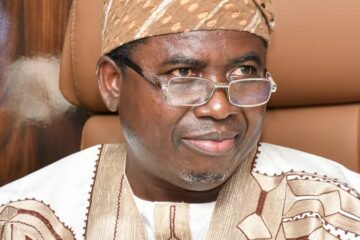
Nigerian economy has been hard hit by the high inflationary trend, slowing the Gross Domestic Product growth rate to 3.54 per cent in the second quarter of 2022, from 5.01 per cent in the corresponding period of 2021.
According to the GDP report released by the National Bureau of Statistics on Friday, inflation and COVID-19 impacted negatively on the Nigerian economic growth rate within the period under review.
A slower economic growth means lower activities within a period.
“This growth rate declined from 5.01 per cent in the second quarter of 2021 when rapid growth was recorded following the toll the COVID-19 pandemic exacted on the economy in Q2 2020,” the NBS said.
The statistics body noted that the recent inflationary trend had adversely impacted the second quarter 2022 performance.
This was 2.27 per cent points higher compared to the rate recorded in July 2021, which was 17.38 per cent.
“This shows that the headline inflation rate increased in July 2022 when compared to the same month in the previous year of July 2021,” the NBS had stated when it released the July 2022 inflation numbers.
But the statistics body said the newly-released Q2 2022 growth rate decreased by 1.47 percentage points from 5.01 per cent growth rate recorded in Q2 2021 and increased by 0.44 percentage points relative to 3.11 per cent in Q1 2022.
“However, quarter on-quarter, real GDP grew at -0.37 per cent in Q2 2022, reflecting lower economic activity in Q2 2022 than in the preceding quarter,” the NBS noted.
Aggregate GDP within the period stood at N45.004 trillion in nominal terms, higher than N39.123 trillion in the same period of 2021, indicating a year-on-year nominal growth rate of 15.03 per cent.
“The nominal GDP growth rate in Q2 2022 was higher relative to the 14.99 per cent growth recorded in the second quarter of 2021 and higher compared to the 13.25 per cent growth recorded in the preceding quarter. For better clarity, the Nigerian economy has been classified broadly into the oil and nonoil sectors.”










